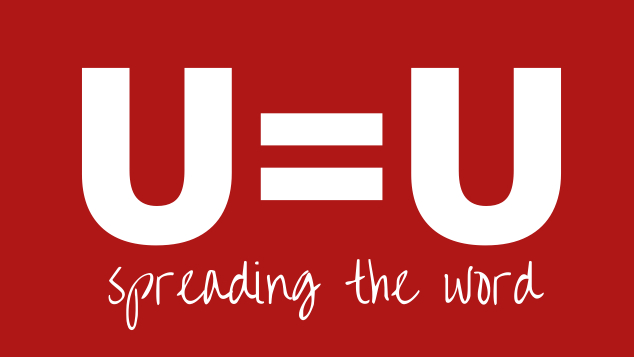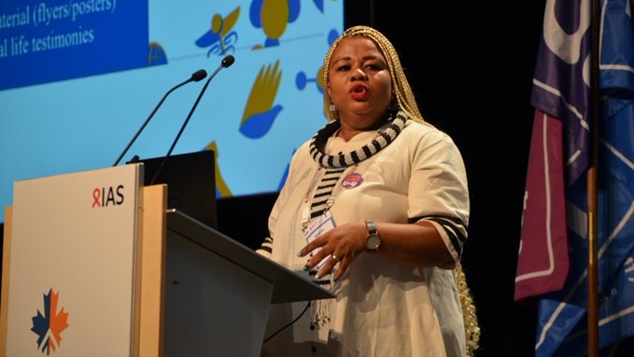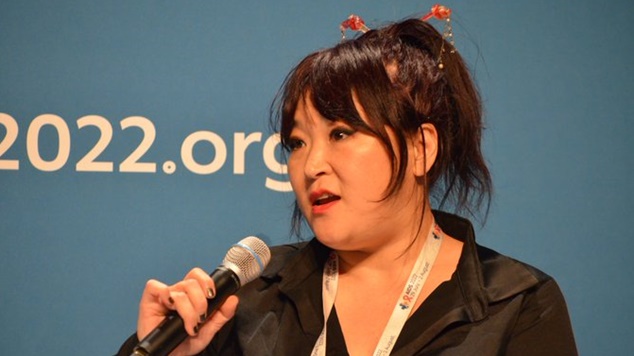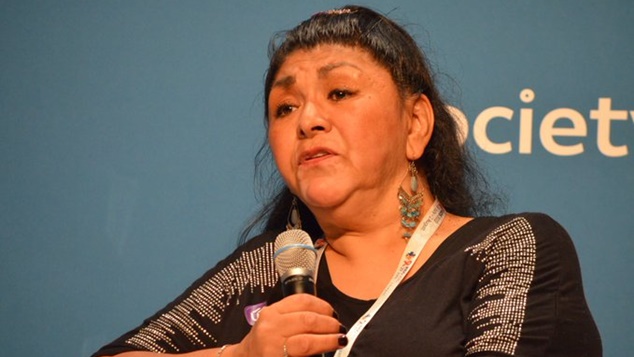
The message of undetectable equals untransmissible (U=U) has been used around the world to reduce stigma surrounding people living with HIV. It educates people about the realities of the virus in the 21st century.
At the 2022 World AIDS Conference speakers from different parts of the world have spoken about how this message has been adapted and adjusted to reach different communities and populations.
In a captivating conference session, people shared the variety of barriers they were trying to overcome including conflict, laws, education, discrimination and bureaucracy.
When a person is living with HIV and is on effective treatment, it lowers the level of HIV (the viral load) in the blood. When the levels are extremely low (below 200 copies/ml of blood measured) it is referred to as an undetectable viral load. This is also medically known as virally suppressed. At this stage, HIV cannot be passed on sexually.
The combination of people who are living with HIV having an undetectable viral load through significant improvements in medical treatments, combined with the increasing accessibility of PrEP treatment that protects people who do not have the virus, has seen the rate of new transmissions drop around the world.
Here’s some of the challenges peers, educators and experts sharing the U=U message are facing around the globe.
Ukraine’s young people are missing out on key messages due the ongoing conflict
For 24-year-old Yana Panfilova from Ukraine the campaign to brink the stigma about HIV faced many challenges, but following the outbreak of war in her home country the challenges of health education have been made even more challenging.
Appearing by video link Panfilova shared she was now a refugee in Germany, but remained committed to continuing her work supporting people living with HIV in Ukraine.
The Russian invasion has stopped education for many young people, and Panfilova highlighted that this would also mean a lack of education about HIV, and in turn about the realities of what it means to have an undetectable viral load.
“This campaign to break the stigma is very important, but now I’m not sure if our young people are going to school or university, because they don’t know what is going to happen tomorrow.” Panfilova said.
At the same time many women and children are displaced, spread across Europe, and for them sex education will be also be disrupted or non-existent.
In South Africa scaling up the message has been bolstered by personal stories
South Africa’s Mandisa Dukashe from the HIV Survivors and Partners Network, spoke about how they had developed an effective way of spreading the U=U message by ensuring the messaging was carefully crafted for different groups.
“It’s not a one size fits all message.” Dukashe said, sharing that her experience was the message had to be kept simple to work effectively across a population where they could be a high level of illiteracy. The way the message was delivered also needed to be tailored to different groups based on sexuality, age, and backgrounds.
Dukashe also highlighted that many different platforms could be used to promote the message but what really had a lot of cut through was the use of real life stories.
“What we saw that worked was the use of real life stories or testimonies, because people relate more positively when a person speaks from their personal perspective.” Dukashe said.
On of the challenges of educating people about the effectiveness of current medical regimes and scientific advances is that many people carry with them decades of previous safe sex education.
“The U=U campaign is about building a movement, it’s not going to be easy.” Dukashe said. “We’re changing mindsets. Everyone used to know that the only way to prevent transmissions is condoms, we cannot change that. We cannot runaway from the fact that the only thing that used to be known is condoms, now we are bringing something new that people are not used to.”
In Australia outlawing sex work reinforces outdated beliefs
Australia’s Jules Kim shared her knowledge about ensuring sex workers have access to medical treatment, and that stigma stops people from getting tested, or being open about their HIV status.
“For sex workers pervasive stigma and discrimination exists in every aspect of our lives, and this includes in access to HIV prevention, treatment and support.”
Kim highlighted that only three countries in the world had decriminalised sex work, and that laws targeted sex workers were almost always out of date when compared to the current science. The effect being that the laws often deter people from getting tested, or beginning treatment.
“For sex workers condoms are routinely used as evidence of a crime, the tools that we use for safety are used against us.” Kim said.
Jules Kim noted that in Australia the laws are different in each state in regards to HIV and sex work, and while some states have updated their laws after being challenged on the science, others have kept the laws on their books.
“Despite the definitive proof of U=U, the law has not caught up to the science.”
“We know that when it comes to HIV and sex work, unfortunately governments remain resistant to evidence, and resistant to the science. Even though we have definitive proof that when you cannot transmit HIV when you have an undetectable viral load, and that decriminalisation reduces HIV transmission.”
Mexico’s transgender community faces many challenges
“Unfortunately for U=U in trans communities the barriers are many.” shared Mexico’s Alexandra Rodriguez “The challenges within the trans communities really makes it hard for transgender individuals living with HIV.”
Rodriquez outlined that transgender people in her local community face discrimination, stigma and discrimination from many people and unfortunately health care remains an area where people feel under threat. The result is a discussion about U=U remains a long way off.
“Misgendering, stereotyping, treating us like we are second class citizens, or even disposable, makes it really hard in the public sector to have really good and qualified medical care.” Rodriquez said the high level of stigma resulted in people not being able to adhere to an anti-retroviral drug regime, which in turned meant the level of people with an undetectable viral load was not as common as in other communities.
Rodriquez said she feared the goal of U=U would remain unreachable within transgender communities as long as high levels stigma and discrimination remained.
“We must empower trans communities. We have to provide the best health care…we have to keep advocating.”
The U=U Global Summit 2022 is being held in conjunction with AIDS 2022, the 24th International AIDS Conference, in Montreal, Canada. The event honours people who have contributed to its continuing understanding and appreciation of how the message of U=U (Undetectable = Untransmittable) is dismantling HIV stigma and promoting better sexual health outcomes and a higher quality of life for those living with HIV.
Graeme Watson, Images: Paul Kidd
You can support our work by subscribing to our Patreon
or contributing to our GoFundMe campaign.









